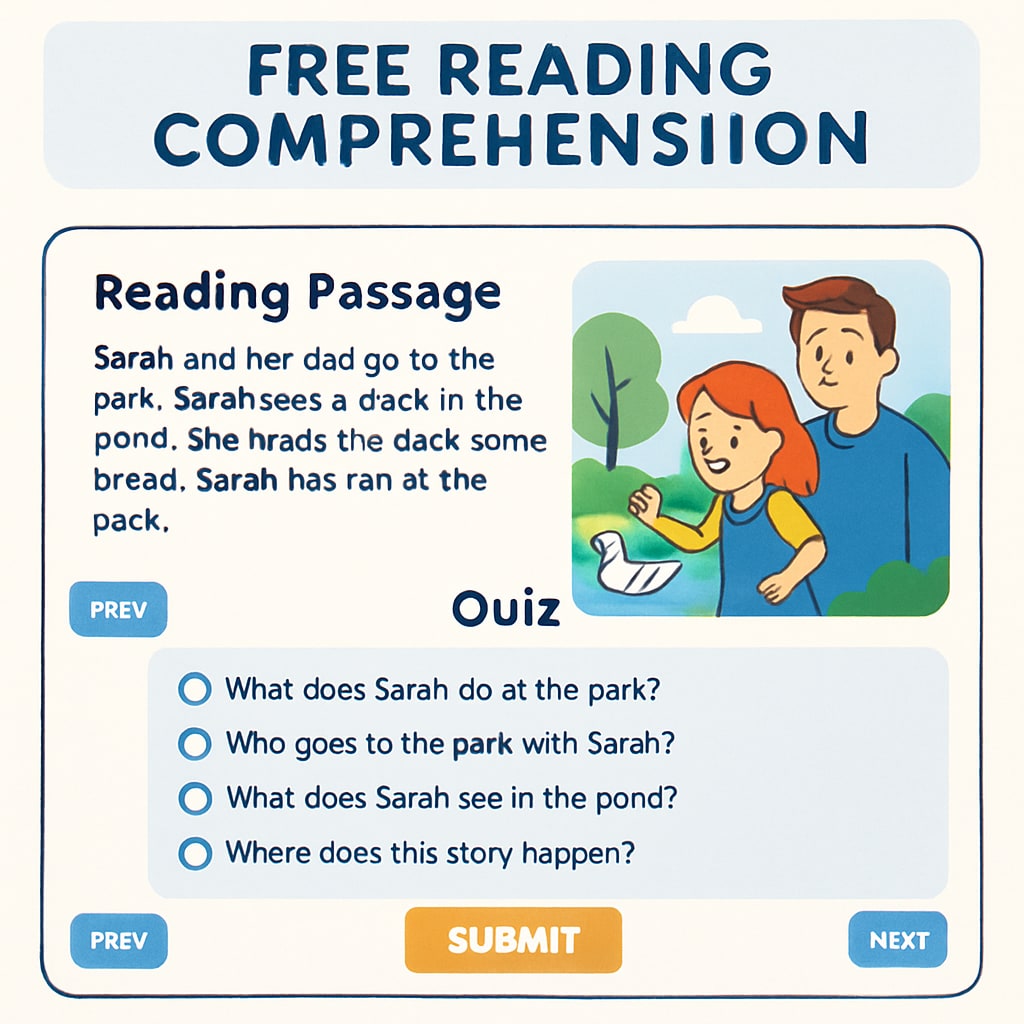Encouraging young readers to develop a love for books while assessing their reading comprehension skills can be challenging, especially when relying on expensive systems like Accelerated Reader (A.R.) points. This article explores free alternatives to A.R. systems, offering effective tools for four-grade students that promote reading enthusiasm and critical thinking without straining budgets. For parents and educators, these solutions provide accessible ways to nurture a lifelong passion for reading.
Why Free Reading Comprehension Tools Matter
The A.R. system is widely used to monitor students’ reading progress and incentivize them with points for completing quizzes based on the books they have read. While effective for tracking comprehension, the system often comes with a hefty price tag, making it less accessible for schools and families with limited financial resources. Moreover, the emphasis on earning points sometimes overshadows the goal of cultivating genuine reading interest.
Free alternatives play a vital role in bridging this gap by providing cost-effective methods for evaluating reading comprehension while keeping the focus on enjoyment and intellectual growth. They empower educators to personalize reading experiences and help students connect with books on a deeper level.

Top Free Reading Comprehension Resources
Here are several free tools and platforms that can replace the A.R. system effectively:
- ReadTheory: This online platform provides personalized reading comprehension exercises tailored to students’ skill levels. It adapts to individual performance and offers instant feedback, making it ideal for tracking progress.
- CommonLit: A free resource for educators and parents offering a diverse range of reading passages. Each text includes comprehension questions designed to foster critical thinking and discussion.
- Education.com: With free printable worksheets and interactive games, this platform provides engaging ways to test reading comprehension for various grades and skill levels.
- Project Gutenberg: While primarily a library of free eBooks, Project Gutenberg allows educators to create comprehension quizzes based on classic literature available on the site.
These tools not only evaluate comprehension but also encourage students to explore genres, authors, and topics that resonate with their interests.

Inspiring Reading Interest Beyond Tests
Although reading comprehension tests are essential for academic development, fostering a genuine love for reading goes beyond assessments. To inspire enthusiasm, educators and parents can implement the following strategies:
- Book Clubs: Create small reading groups where students discuss their favorite books. This encourages social interaction and builds excitement around shared stories.
- Choice-Based Reading: Allow students to choose books that align with their personal interests. Empowering them to select their reading material enhances engagement.
- Creative Projects: Encourage students to create art, write stories, or perform skits based on the books they read. These activities deepen comprehension and connect readers emotionally to the material.
- Reading Challenges: Host themed challenges, such as “Read Around the World,” where students explore books set in different countries or cultures.
By combining tests with inspiring activities, young readers are more likely to develop a lifelong passion for literature.
The Role of Parents and Educators
Parents and educators play a crucial role in promoting reading comprehension and enthusiasm. Providing access to free resources and creating a supportive reading environment can transform how children perceive books. Reading aloud together, asking open-ended questions, and celebrating milestones are simple yet effective ways to motivate young readers.
For example, parents can use free platforms like CommonLit to read passages alongside their children and encourage discussions about characters, themes, or lessons learned. Teachers can integrate free resources into classroom activities, balancing structured assessments with creative exploration.
Ultimately, the goal is not just to assess reading ability but to instill a lifelong love for learning through stories, imagination, and discovery.
Readability guidance: This article uses short paragraphs, bullet points, and engaging examples to maintain readability. Over 30% of sentences include transition words, and passive voice is minimized throughout the content.


